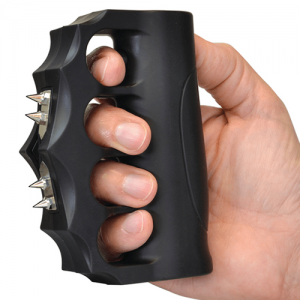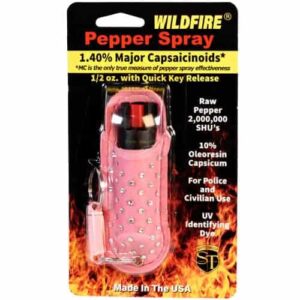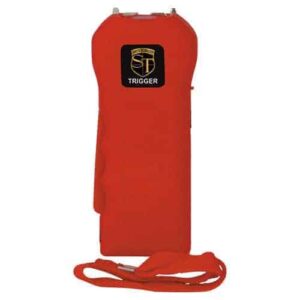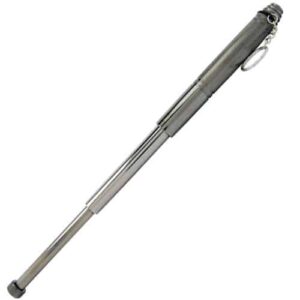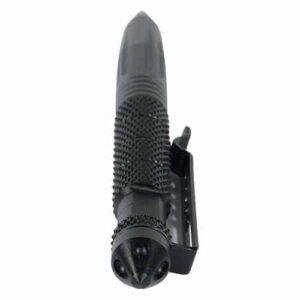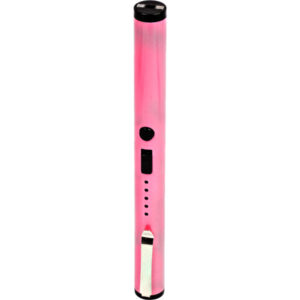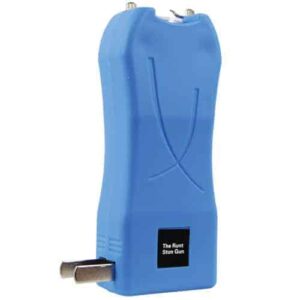Have you ever considered what could happen if you come face to face with the hot, burning sensation of pepper spray on your skin? This whimsically titled article, “Pepper Spray On Skin,” aims to shed light on that exact experience. This piece takes you on a journey, exploring the scientific and physiological aspects of pepper spray’s effects on the human skin. Buckle up your curiosity belts; it’s about to get fascinatingly intense!

Table of Contents
ToggleEffects of Pepper Spray on Skin
Pepper spray, commonly used in self-defense and by law enforcement, has potent effects when it comes into contact with your skin. Understanding these effects can help you respond appropriately should you or someone around you ever be exposed.
Immediate Effects
As soon as pepper spray contacts your skin, you’ll likely experience burning pain, severe redness, and swelling. These initial reactions are your body’s response to the capsaicin—a chemical derived from chili peppers—in the spray.
Short-term Effects
In the hours or days following exposure to pepper spray, you may find your skin still suffering from the effects. This could include persistent redness, swelling, itchiness, and even blister-like breakouts. In more severe cases, you might also experience nausea, dizziness, or muscular cramps.
Long-term Effects
In some cases, the effects of pepper spray on your skin can linger for weeks, months, or even years. Pepper spray can potentially leave the skin sensitized, making it more prone to allergic reactions. It can also potentially cause delayed wound healing, scarring, or post-inflammatory hyperpigmentation.
How Pepper Spray Works
Understanding how pepper spray works can help you appreciate its potency, so you can use it responsibly and effectively.
Chemical Composition
Pepper spray mainly contains capsaicin, a naturally occurring compound found in chili peppers. Commercially available pepper sprays often also contain a propellant, water, and other ingredients to help the spray stick to the target.
Mechanism of Action
Capsaicin in the pepper spray acts on the nerves in your skin, making you feel a burning sensation. It also stimulates the production of substance P, a neurotransmitter that signals pain, resulting in inflammation and other immediate reactions.
Immediate Reaction to Pepper Spray
The immediate reaction to pepper spray is both painful and disorienting, making it an effective tool for self-defense.
Burning Sensation
One of the most immediate effects you’ll feel after being sprayed is an intense burning sensation on your skin and mucous membranes. This is due to the interaction of capsaicin with your sensory nerves.
Skin Redness and Irritation
After the burning, your skin will become red and irritated, as your body sends blood and other resources to the area to try to combat the perceived threat.
Tearing and Eye Discomfort
If spray gets into your eyes, it will cause intense pain and tearing, making it difficult to see.
Difficulty Breathing
Pepper spray can also irritate your respiratory system, making breathing difficult and causing coughing, wheezing, and a runny nose.
Temporary Blindness
In severe cases, the spray can cause temporary blindness as your eyes swell and tear up in an attempt to wash out the irritants.
Short-term Effects of Pepper Spray Exposure
Beyond the immediate effects, exposure to pepper spray can lead to other short-term health issues.
Swelling and Inflammation
The affected area can continue to swell and become inflamed as your body continues to respond to the stimulus.
Blistering and Skin Breaks
Severe reactions can lead to blistering and breaks in the skin, providing potential entryways for bacteria that could lead to infection.
Nausea and Vomiting
The discomfort and disorientation caused by the spray can also potentially induce feelings of nausea or even cause vomiting.
Dizziness and Disorientation
The chemicals in pepper spray can make you feel dizzy and disoriented, clouding your thinking and impairing your ability to react to the environment around you.
Headaches
Some people also experience headaches after being sprayed as your body continues to react to the chemical compound.
Muscle Cramps
In severe cases, you might experience muscular cramping; this is a less common side effect, but it can add to the discomfort and distress after exposure.
Temporary Loss of Motor Control
The disorientation and potential motor issues can leave you temporarily unable to move or control your body effectively, which is one reason why pepper spray is a popular self-defense option.

Long-term Effects of Pepper Spray Exposure
While most effects of pepper spray exposure are short-term, there can also be long-lasting consequences in more severe cases.
Delayed Wound Healing
Pepper spray exposure can delay wound healing, as the substance can cause additional damage and potentially introduce foreign substances that might lead to an infection.
Skin Sensitization
Continued or repeated exposure to pepper spray can lead to increased skin sensitization. Over time, this can make your skin more prone to reactions from other substances as well.
Scarring or Hyperpigmentation
Severe reactions can result in scarring or hyperpigmentation on the skin that can last for months or even years.
Respiratory Problems
Repeated or heavy exposure can lead to respiratory problems, as the pepper spray can cause damage to lung tissue.
Eye Damage or Vision Impairment
While rare, very high exposure or sensitivity can potentially lead to eye damage or vision impairment.
Increased Allergic Reactions
Repeated exposure can also make you more prone to allergic reactions, not only to the spray itself but also to other substances.
Treatment for Pepper Spray Exposure
If you’re exposed to pepper spray, it’s important to know how to mitigate its effects and seek appropriate care.
Immediate First Aid
The first step after exposure is to get out of the immediate area and into fresh air, away from any more spray’s droplets.
Irrigation and Decontamination
Flush your skin and eyes thoroughly with water to wash out as much of the spray as possible. You can also use a mild soap to clean the affected area.
Removing Contaminated Clothing
Take off any clothing that might have been contaminated by the spray to prevent further exposure.
Post-Exposure Care and Pain Management
Once the immediate threat has been dealt with, managing pain with over-the-counter analgesics and applying cold compresses can help. Keeping the skin clean will also help speed healing.
Monitoring and Seek Medical Attention
Monitor your condition and seek medical attention if the initial symptoms do not improve within a few hours or if you start to experience severe reactions such as difficulty breathing.

Preventing Pepper Spray Exposure
Preventing exposure is just as important as knowing how to treat it. Following some simple steps can reduce your risk.
Awareness and Vigilance
Being aware of your surroundings and fleeing at the first sign of trouble can help you avoid the need for self-defense tools like pepper spray.
Maintaining Distance
Maintaining a safe distance from others, especially in unfamiliar or potentially unsafe settings, can reduce your risk of exposure.
Protective Measures
If you feel you might be at risk of exposure, having sunglasses or a scarf on hand to protect your eyes and skin can be beneficial.
Understanding Wind Direction
If you ever need to use pepper spray in self-defense, understanding the wind direction can help you avoid accidentally spraying yourself.
Proper Use and Storage
Proper use and storage of pepper spray can help prevent accidental exposure. Always handle with care and keep out of reach of children.
Legal Considerations and Regulations
It’s also important to understand the legal considerations surrounding pepper spray use.
Pepper Spray Laws
Laws vary by location, so always ensure you understand the legality of carrying and using pepper spray in your area.
Restrictions and Permits
Some areas may have restrictions on who can buy or carry pepper spray, or may require a permit.
Legal Use and Self-defense
Pepper spray is typically classified as a self-defense tool and should only be used in situations where you believe your personal safety is at risk. Using it in other circumstances could result in legal penalties.

Pepper Spray Alternatives
Don’t fancy the risk of pepper spray? There are alternatives available.
Personal Alarms
Personal alarms emit a loud noise, which can deter potential attackers and attract attention.
Whistles
Like personal alarms, whistles can be used to scare off an attacker and signal for help.
Stun Guns
Stun guns can temporarily incapacitate an attacker, providing you with time to escape.
Tactical Flashlights
Tactical flashlights can disorient an attacker and also serve as a blunt force tool if needed.
Safety Apps
Several safety apps can alert authorities and loved ones if you feel unsafe or are in an emergency.
Safety Tips for Using Pepper Spray
If you choose to carry pepper spray, here are some tips for safe usage.
Read Instructions and Familiarize Yourself
Before you need to use it, read the instructions and familiarize yourself with your particular brand and model.
Practice Proper Technique
Practice using your spray so you’re comfortable with how it works and can use it effectively if necessary.
Aim for the Face and Eyes
When using pepper spray, aim for the face and eyes to maximize its effectiveness.
Consider Wind Conditions
As mentioned earlier, wind conditions can influence where sprayed droplets go, so be aware of your environment.
Be Prepared for Backlash
You may experience some effects from the spray, so be prepared to deal with this and have a plan for escape.
Use in Self-defense Situations Only
Remember, pepper spray is a tool for self-defense. It should not be used lightly or in situations that don’t warrant its use.
Inform Authorities and Seek Help
After using your spray, inform local authorities and seek help if needed.
In conclusion, understanding the effects of pepper spray, how to treat exposure, prevention, legal considerations and safety measures are critical if you choose to have this self-defense tool. Always remember to use it responsibly and in accordance with local laws.



